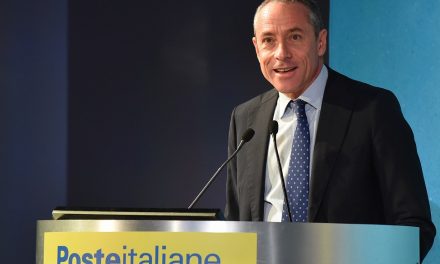
TNT profits fall ahead of demerger
TNT reported a drop in profit for both its Mail and Express units for Q1 2011, ahead of its planned demerger of the businesses later this month. The Dutch company’s Mail arm saw profits fall from EUR 144m to EUR 123m – a drop of 14.6%. Furthermore, reported operating income decreased to EUR 125m, whilst “profit from discontinued operations (Express Business) was EUR 54m” compared to EUR 22m for the year before.
Overall, revenue for the period grew by 4.3% from EUR 1.07bn to EUR 1.11bn. However, this included “the effect of the different presentation of International (Postcon) revenues (EUR 77m)”. Adjusting for this, revenues declined by 2.7%.
TNT blamed the drop in addressed mail volumes for its underlying operating income falling by 33.3% to EUR 120m. The drop was also attributed to price and mix changes in Mail in NL (EUR 32m), higher pension P&L charges (EUR 27m), Master plan implementation costs (EUR 3m) and other items (EUR 6m), partly offset by Master plan savings (EUR 13m) and improved contribution from Parcels and International (EUR 5m).
Underlying cash operating income was EUR 76m – a 33.9% decrease from the prior year, due to the combination of lower operating income (EUR 60m) and higher restructuring cash outflow (EUR 4m), on the one hand, and lower changes in pension liabilities (EUR 25m), on the other.
Mail volumes in the Netherlands dropped by 8.6% – contributing to underlying revenue declining by 6.3% for that segment. Underlying operating income in Mail in the Netherlands decreased by EUR 46m or 37.7% to EUR 76m.
TNT said the Mail business benefited from better performances on the international stage. Losses in underlying operating income for the division dropped from EUR 6m to EUR 2m – a 66.7% improvement.
The company said Germany’s Regioservice remains loss-making but improved. The regulatory environment in Italy was improved by the elimination of the reserved area for Poste Italiane, which allows TNT to compete in key areas such as direct mail and registered mail, it added.
Looking to the rest of 2011, a company statement said: “Mail expects addressed volume declines in 2011 in the Netherlands of 8 to 10% due to ongoing substitution and competition, in this second year after full liberalisation. Master plan savings of EUR 50m to 60m are targeted for the year. Mail’s underlying cash operating income (defined as underlying operating income minus pension cash outflows and cash out for restructuring) is expected to be EUR 130m to 170m. After separation, Mail’s dividend guidelines for the next few years will include a payout around 75% of underlying net cash income, with a minimum of EUR 150m per annum. In addition, shareholders will be given the dividend that Mail receives from the Express business.”
Reporting its Express business’ results as discontinued operations ahead of the demerger, TNT announced that Express revenues increased by 6.6% to EUR 1.79bn for Q1 2011. Despite of this growth, underlying operating income plummeted by 31% to EUR 49m, whilst EBITDA also fell by 14.8% to EUR 104m.
Reported operating income stood at a EUR 79m loss. However, this included a non-cash EUR 120m impairment due to integration problems in Brazil. In the South American country, TNT has suffered from “unexpected and recent volume losses and performance pressure.” Addressing the problems, TNT said: “A new, experienced leadership team is in place since March and taking immediate action to ensure full control, customer stabilisation and service quality. The business has been set deadline for realising a turnaround by no later than the second half of 2012.”
Both the number of volumes and the weight of cargo rose during Q1. Daily consignments were up 1.5% whilst the company’s kilos percentage grew 6.5%. Core revenue quality yield was -1.8%, compared to -2.3% in Q4 2010 and -1.8% in Q3 2010. Core yield including fuel was -0.4%.
TNT said that Express performance across Europe & MEA was “resilient”, whilst the Asia Pacific region experienced “lower than expected China-Europe air volumes”. However, domestic performance in China was in-line with expectations.
In the future, TNT said that restructuring indirect and non-core activities will save EUR 40 to 50m per year.
Revised targets have been set for the remainder of 2011. Europe & MEA revenue is now expected to grow modestly, with an underlying operating margin in line with last year (9% or slightly above). In Asia Pacific, TNT expects to “partially to recover on the back of now-improving intercontinental volumes”. The company added that “continuing negative performance” in the Americas is being addressed.
Commenting on the announcement, CEO Peter Bakker, who will leave the business after the demerger, said: “The necessary steps towards the separation of the Mail and Express businesses have now been completed, including all required notifications and publications. The demerger will be presented to our shareholders for approval at the May 25 AGM/EGM.
”In Q1, the Mail Business performed in line with expectations, with an ongoing focus on cash and costs. Important clarity was achieved on April 7, when Parliament approved the new Tariff Regulation defining tariff development of the Universal Service Obligation in the Netherlands. Mail management continues to engage with the Works Council regarding the implementation of Master plan restructuring.
”In Express, Europe was resilient and AsPac continued to show improved volumes in latter weeks. Management is committed to address the serious integration issues in Brazil, with a deadline of realising a turnaround no later than by the second half of 2012. Today Express management also announces new cost savings targeted at EUR 40 to 50m annually.
”Leading up to the general meeting of shareholders on May 25, the Boards of Management of Express and Mail will update the market in detail on the investment opportunities that both companies offer. This will happen at the Express Capital Markets Day on May 3 and the Mail Capital Markets Day on May 9, and during the roadshows following each event.”












